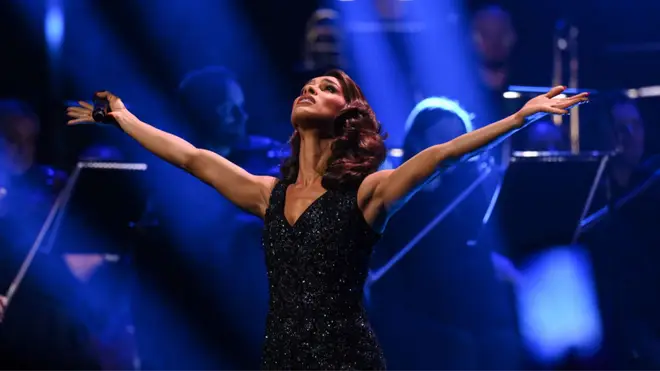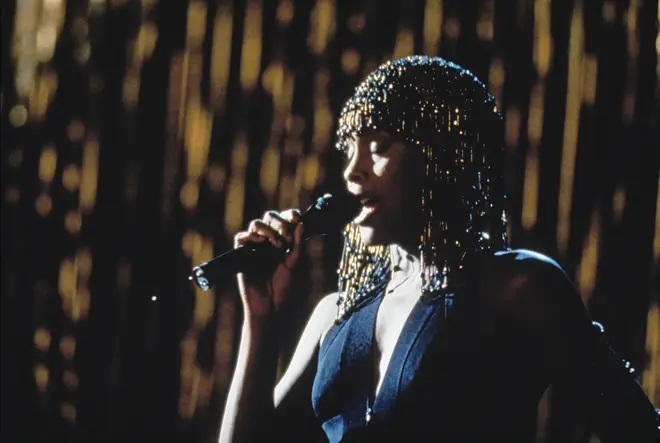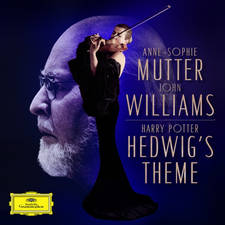Unruly singing audience members at ‘The Bodyguard’ spark musical theatre etiquette debate
11 April 2023, 14:30 | Updated: 11 April 2023, 15:40

A performance of the musical ‘The Bodyguard’ was shut down last week after audience members ‘screamed’ over the lead’s rendition of ‘I Will Always Love You’.
Listen to this article
The Bodyguard, a musical based on the 1992 romantic drama film, was shut down in Manchester last week after a performance was interrupted by audience members attempting to sing over the show’s cast members.
The touring show, currently running at the Palace Theatre in the northern English city, stars former Pussycat Doll singer Melody Thornton in the lead role of Rachel Marron.
Toward the end of the musical, Marron sings ‘I Will Always Love You’, the Grammy Award-winning song sung by Whitney Houston for the film’s original release. The ballad is one of the late American artist’s best-known songs and the film catapulted the work – originally written by Dolly Parton almost two decades prior, to worldwide fame.
But this soulful song had to be cut short during a performance of the musical last Friday night, when audience members in the upper tiers of the Manchester theatre began sing-screaming along to the famous number, drowning out Thornton.
The members of the audience who had interrupted the show were subsequently escorted out of the theatre (watch in the video below), and police were called to the scene, leaving the show unfinished and ending 10 minutes before it was meant to.
Read more: Audience member banned from Royal Opera House after he loudly booed child singer during aria

Disruptive audience members removed from Manchester theatre
While some musicals have songs at the end of the production which audience members are allowed to sing along with, this was not one of these opportunities, and the events that took place at the Palace Theatre have started a wider conversation about audience etiquette in the industry.
Staff at the theatre in question take the no-singing policy seriously, holding up signs that read ‘Please refrain from singing along, thank you’ due to previous experiences with rowdy audiences during the touring show’s run.
In its previous location in Glasgow, the show released a statement on Facebook, asking patrons to ensure the professionals on stage, were the only ones “entertaining us with their performances”.
Read more: Cellist HAUSER plays ‘Phantom of the Opera’ on Lloyd Webber musical’s 35th anniversary

Police were called to the Manchester venue last week not due to the singing that occurred, but the unprecedented violence which followed when the audience members were removed from the theatre.
Three riot vans from the Greater Manchester Police arrived outside the theatre after reports of a “mini-riot” and “fights” in the audience.
Earlier in the week prior to the incident, the banning of singing at the touring musical had been a topic discussed on the national talk show programme, This Morning, led by presenter Alison Hammond.
Hammond had previously said she didn’t understand the problem with singing at musicals, stating she’d be ‘devastated’ if she saw the no-singing signs if attending the performance.
Read more: Police across America issue warnings over busking scammers, pretending to play the violin
I’m new to the world of theatre. But sad and disappointed tonight at the state of some peoples arrogance and disrespect while at a show.
— Karl Bradley (@KarlBradley_1) April 7, 2023
Completely ruined #TheBodyguard, singing over the actors, to the point of them cancelling the show & police being called 🤦♂️😢 #Manchester pic.twitter.com/6pacRPKdqs
Since watching the clips, Hammond has apologised, citing she didn’t realise the levels of disruption that were occurring at the performance.
However, acclaimed musical theatre choreographer Dame Arlene Phillips responded to the television presenter on Twitter, writing, “Thank you for your apology but I would just like to say, you have no idea what it is really like for those performers in the shows where the songs are popular hits and certain members of the audience feel entitled to join in.
“Performers are unsure what to do. They are not trained when audiences get out of control and argue with each other. It’s so distressing.
“Let’s hope this behaviour stops and normality returns.”


































